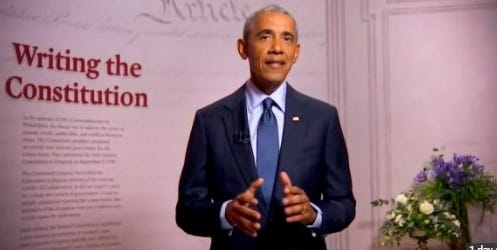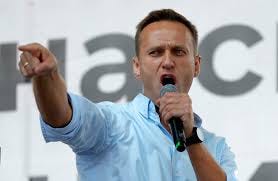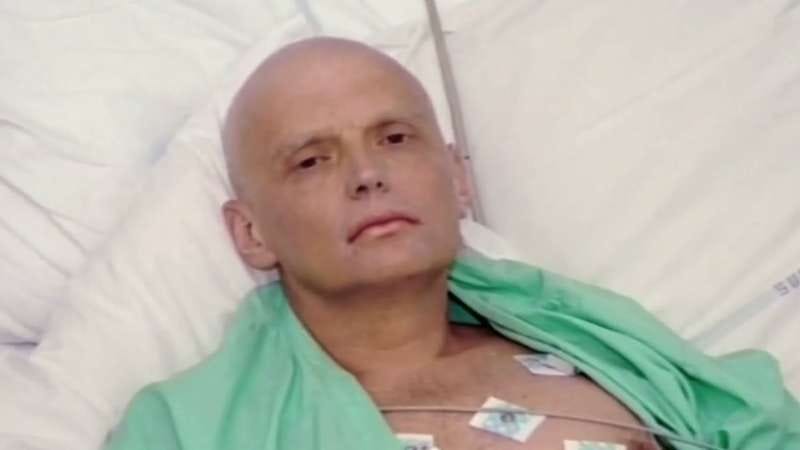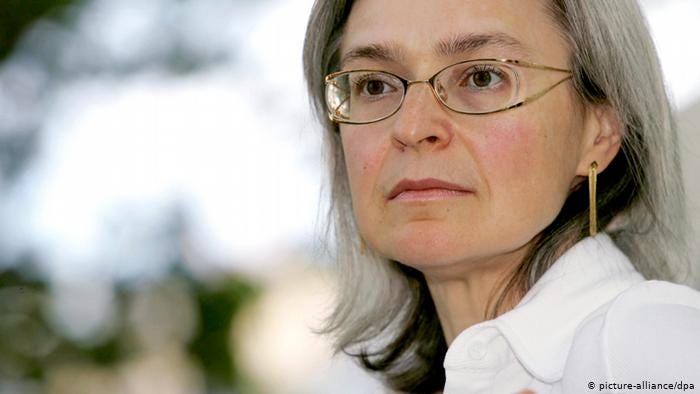INSIGHT: US Election, Putin Critic in a Coma, Belarus on the Balance, Israel-UAE Aftershocks
2nd Edition: The Darkness vs Light Convention; US Intel on Russia; Another Putin Critic Ailing, Belarus Revolution on the Balance; Rain on Netanyahu's Parade
INSIGHT: DARKNESS AND LIGHT EDITION

The intensity we have been experiencing in the United States will not let up between now and Election Day and, judging by President Donald Trump’s refusal to say he will accept the election results if he loses, Nov. 3 could mark the beginning of even greater tension. If its any consolation for Americans, they are not the only ones experiencing political anxiety.
Let’s get to it!
The Highlights
With little more than 70 days until the election, Democrats held their quadrennial national convention, a DNC like no other in history - and Trump reacted like no other president in history. The DNC spotlight helped overshadow a damning Senate report on Russia interference in the 2016 election, and its ties to the Trump campaign. Old news perhaps, but as relevant as ever. What’s ahead for Republicans next week?
In Russia, Putin’s top critic, Alexei Navalny, suddenly became gravely ill, a mysterious fate that befalls a remarkably large number of people Putin doesn’t like. What is Kremlin-controlled media telling the Russian people?
In Belarus, huge crowds continued pressuring the dictator to step down or allow fair elections. What has Trump said about it, and what does it mean – and what will Putin ultimately do?
In the Middle East, the aftermath of the UAE-Israel deal is controversial in places one would expect, and in some you wouldn’t. What does the landmark agreement mean for Prime Minister Benjamin Netanyahu’s survival?
2020 DNC – Democrats Launch Their Offensive

In a time unlike any we’ve experienced, the Democrats staged a convention unlike any we have seen. It was virtual, strange, and it mostly worked. I have covered many conventions in person, so this virtual event was a bit surreal. But I think it was effective. The times are wrong for the carnival atmosphere of normal conventions. This was one solemn, serious, grave, and very personal.
This was a convention like no other; not because it was virtual, but because of something much more important: Democrats were not just making the traditional case that their policies would be superior to that of Republicans.
They made a graver argument; that the survival of American democracy is at stake in November. Former Vice President Joe Biden made it stark when he vowed to help the country “overcome this season of darkness.”
Biden easily exceeded expectations, not only enumerating his plans, but mostly by underscoring the theme of his campaign and the convention, that this is a battle for the soul of America.
Historian Jon Meacham laid it out.
“We must decide whether we will continue to be prisoners of the darkest of American forces or will we free ourselves to write a brighter, better, nobler story.”
It was not hyperbole.
Former President Barack Obama issued a clarion call, a dire warning:

“Do not let them take away your power. Do not let them take away our democracy.”
Trump responded to Obama’s stunning evisceration of his presidency and his character with a raging tweetstorm in all caps, throwing everything he could at Obama.

Obama clearly got under his skin.
On Monday, the first night, CNN asked me to write about a particular aspect of the DNC that stood out for me. I chose the story of the young woman, Kristin Urquiza, who lost her father to Covid-19. She blames Trump. In a departure from my usual writing, I explained why her words rang true:
“Maybe Urquiza's words touched me because I lost my father early in my life. I understand the pain, the frustration, the anger after such a crushing tragedy; I have always felt a lingering emptiness in that spot, somewhere in the solar plexus, where a daughter's special connection to her father resides. I felt Urquiza's words emanate from that place, newly wounded, still smoldering and tender.”
I hope you’ll read it.
Trump’s failure to deal with the pandemic was one of the main themes of the convention, and hardly a contrived one. It is, I believe, definitive proof that he has failed at his job.
If there was a silver lining for Trump, it’s that the DNC helped overshadow damning news coming at him from all sides. The Republican-run Senate Intelligence Committee issued a massive report on Russia’s 2016 US election interference, and it was jaw dropping. Trump campaign chairman, Paul Manafort, was working with a man the report describes as a “Russian intelligence agent,” not maybe, not suspected. An agent. Check out my article on the explosive report that failed to detonate even though
“The evidence went beyond the Mueller report, more damning than anything we have heard until now.”
If there was malfeasance in 2016, it looks no better now. The Trump administration has weaponized the Postal Service, as Trump seems determined to make voting more difficult during a pandemic whose confirmed U.S. death toll now approaches 180,000 people, and counting.
According to Ronald Brownstein,
“President Donald Trump’s open admission yesterday that he’s sabotaging the Postal Service to improve his election prospects crystallizes a much larger dynamic: He’s waging an unprecedented campaign to weaponize virtually every component of the federal government to partisan advantage.”
Putin Critic in a Coma

In what is a curiously common coincidence, another one of the Russian president’s leading critics has suffered a life-threatening event. Alexei Navalny is the most influential figure in the Russian opposition. The charismatic and photogenic activist leads an NGO that exposes corruption, shining a light on the ways Russians are being robbed by Putin and those close to him. He has led frequent mass protests across the country.
He was on his way back to Moscow, from a trip supporting democratic efforts in far-flung regions of the country. Discontent with the regime has been creating movements in places like Khabarovsk, in the Far East, where huge anti-Putin protests, have taken place. In mid-flight, Navalny became severely ill. His plane made an emergency landing in Siberia. At this writing, he is hospitalized in Omsk, in a coma, on a ventilator. His organization says he has been poisoned. Officials have made it difficult for his wife Yulia to see him, and have so far blocked him from being transported to Germany for treatment. The focus in the hospital, according to the group, is not helping him heal but covering up a crime.


Last year, Navalny was rushed to the hospital from the police station after one his many arrests. He was apparently poisoned then, too. In 2017, someone threw a substance at him that blinded him in one eye.
The use of poison by Putin’s agents is well known.
Remember Sergei Skripal, poisoned by Russian agents in England with his daughter, and Alexander Litvinenko, who died in London of radioactive polonium poisoning dropped in his tea by Russian agents, or Anna Politkovskaya, the investigative journalist assassinated for her work, to name just a few. Other Putin foes have been shot, fallen out of windows, and had heart attacks in the back seat of their cars.


Russia’s news agency TASS unfurled its version of events, simultaneously clearing the Kremlin and smearing Navalny. It claimed that a “police source” said there was no “intentional poisoning,” but instead, it was the use of hallucinogenic drugs causing the health crisis.


It would require hallucinogenic drugs to believe that story for anyone who has been paying attention to Russia in recent years.
Belarus and the Struggle for Democracy
On Russia’s west, in Belarus, the people continue to demand democracy after more than a quarter century of rule by Alexander Lukashenko. Massive demonstrations followed an election that was almost certainly won by opposition candidate Svetlana Tikhanovskaya, the unlikely hero who took the reins of the struggle after the regime imprisoned her husband.
Michael McFaul, the former US ambassador to Russia under Obama, made an interesting observation:

Trump has said nothing about Belarus, and nobody cares, McFaul said, a sign that the US has vanished as the “leader of the free world.”
Trump actually mentioned Belarus, but it was, shall we say, unclear what he meant. “I like seeing democracy. Democracy is a very important word,” Trump said. “It doesn’t seem like there’s too much democracy there in Belarus.”
The dilemma for the West is how to help. The European Union is offering to mediate, calling for “national dialogue.” Russia won’t allow Belarus to draw close to the European Union and the U.S., as Ukraine has. Moscow and Minsk have a mutual defense treaty and Lukashenko and Putin could claim (as they have already suggested) that the West is threatening Belarus and use that as an excuse for Moscow to intervene.
Dimitri Trenin, a veteran Russia watcher, think Putin may dump Lukashenko.
“The Kremlin has had enough of Lukashenko, but it cannot allow Belarus to follow the path of Ukraine and become another anti-Russian, NATO-leaning bulwark on its borders.”
The brilliant Kori Schake, a former official in the Bush administration, offered a set of ideas of how the U.S. could help Belarusians without making things worse. It’s an interesting read, if nothing else because it shows the kinds of measures Washington has at its disposal, beyond military intervention and empty words.
Speaking of Schake, she is one of the signatories in a letter by more than 70 former top Republican national security officials, who say they will back Biden because they think Trump is destroying America’s position in the world.
The Middle East Still Shaking Its Head
The announcement that the UAE and Israel will normalize relations has thrown the Middle East for a loop. Netanyahu told Sky News Arabia that the top priority now is “expanding the circle of peace,” meaning forging similar agreements with other countries.
There is still an expectation that more Arab countries will follow suit, but just how controversial the notion remains became clear when a spokesman for Sudan’s foreign ministry said Khartoum was on the verge of normalizing relations with Israel, and was promptly fired.
The UAE is defending itself from critics who say it betrayed Palestinians, vowing it will use its new links with Israel to press for a Palestinian state.
It looks like the UAE may get high-end military gear from the U.S. as part of the deal. Netanyahu has denied he agreed to removing Israel’s objections to the US selling advanced F-35 fighter jets to the Emirates. But the sale may happen, even if Israeli security experts think that could ultimately endanger the Jewish state.
Still, the landmark peace deal is a triumph for the Israeli prime minister. You would expect, then, that it would bulletproof Netanyahu’s political standing. You’d be wrong.
As I wrote in World Politics Review:
Netanyahu’s celebrations have been tempered by bitter recriminations at home, a reminder that in Israel, no win comes without wounds.
Here’s the full article.
That’s it for this week.
Next week we’ll be treated to the Republican National Convention. Brace yourselves. The contrast with the DNC will be stark. And while Americans focus on the election, the rest of the world will continue spinning. I’ll keep an eye on Navalny, on Belarus, on Latin America, Asia and Africa. And even on New Zealand and Australia, where things are also getting interesting.
See you then.
Frida




